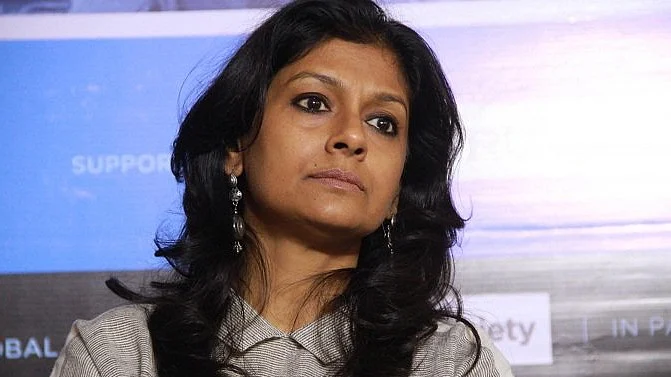On Thursday, Hindustan Unilever announced it will drop the word ‘fair’ from its Fair & Lovely range of products in order to make its portfolio ‘more inclusive’. Actor-director Nandita Das, who has always fought against skin colour stigma, mentioned that the move, though symbolic, is a step forward.
Speaking to Mumbai Mirror, Nandita said, “In the midst of the COVID-19 pandemic, a number of social wrongs have found a surprisingly sympathetic audience. The announcement today by Hindustan Unilever that they will remove the words ‘fairness’, ‘whitening and ‘lightening’ from their line of products, is something I don’t think anyone saw coming. Even though it is more symbolic (after all they have not discontinued the product, just changed the messaging), it is still a big step forward.”
“Many brands spend hundreds of crores of rupees to spread the absurd message of fair being lovely in a largely dark country. So, when a market leader steps in, at the very least, it will certainly lead to an even wider debate.”Nandita Das
Believing in ‘better late than never’, Das added, “Yesterday, Johnson & Johnson announced that it would stop its line of skin whitening products. Also, that they would add more shades to their Band-Aids outside of the current ‘skin colour’. Whose skin are we talking about anyway! I thought to myself, ‘well, better late than never’. Maybe some in the cosmetic industry are realising that such products and imageries feed racist and colourist stereotypes.”
Speaking about her association with the ‘Dark is Beautiful’ campaign, she said that she was approached by a Chennai-based organisation in 2013 to support the campaign, but she never anticipated the impact it would create.
“I didn’t realise it would touch such a raw nerve. It suddenly went viral and brought attention to this prejudice which has been normalised over the years. By default, I became the face of the campaign.”Nandita Das
In September 2019, Nandita Das had released a music video titled India’s Got Colour and featured a plethora of Indian actors - Radhika Apte, Ratna Pathak Shah, Suchitra Pillai, Swara Bhaskar, Shweta Tripathi, Sayani Gupta, Tillotama Shome, Tannishtha Chatterjee, Divya Dutta.
The 2-minute clip highlighted the diversity of skin tones in India and takes on the discrimination faced by those with darker skin.
(At The Quint, we question everything. Play an active role in shaping our journalism by becoming a member today.)
